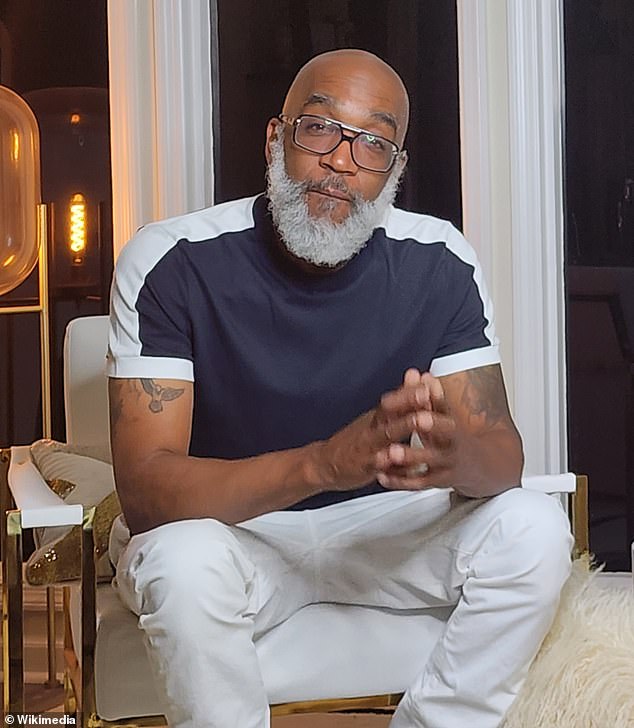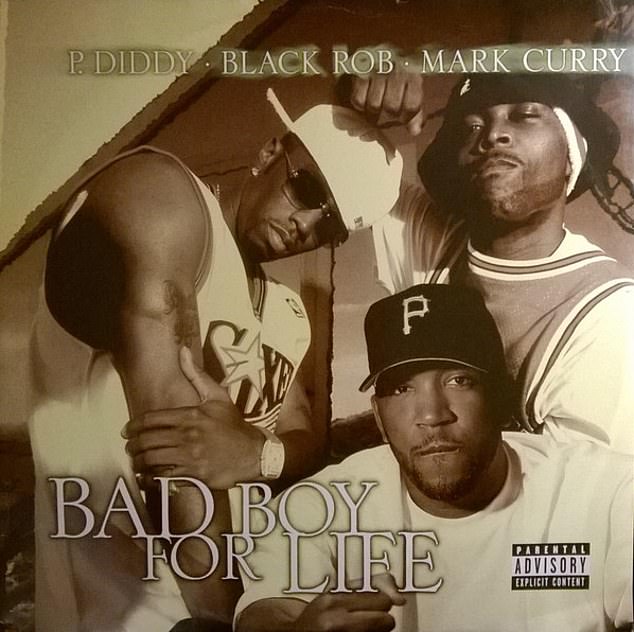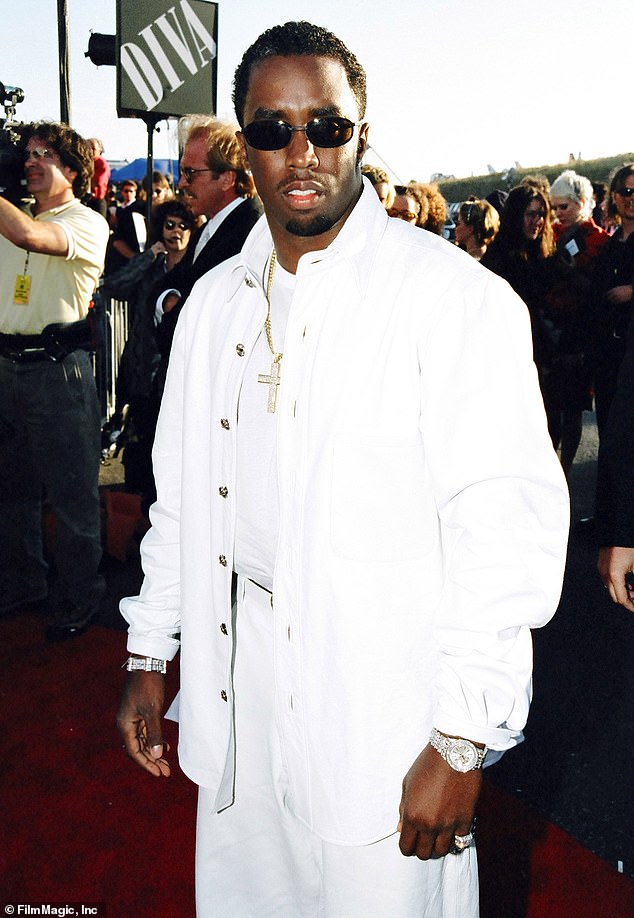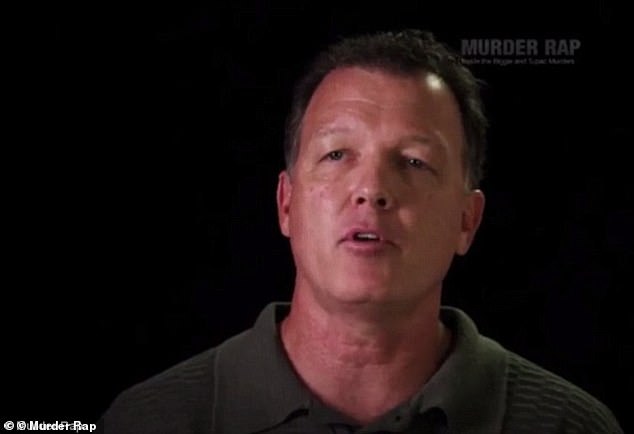REVEALED: Diddy’s drastic move that bought the silence of celebrities before his bombshell arrest
Sean “Diddy” Combs may have bought the silence of his A-list friends by giving them back the lucrative rights to their music records in exchange for non-disclosure agreements, a former rapper close to him has claimed.
A month before being hit with a scathing lawsuit from his ex-girlfriend Cassie that ultimately resulted in criminal charges, Diddy surprised the music industry by returning publishing rights under his Bad Boy label to a host of artists under his control.
Although the decision was praised at the time, rapper Mark Curry joined the Daily Mail’s popular podcast The Trial of Diddy this week to give his inside thoughts on what he believes really happened.
“He gave all the artists back their publishing rights in exchange for a non-disclosure agreement not to talk about him,” he claimed. “Because I think he had an idea that this was in the pipeline.
“I tried very quickly to cover his tracks, but it didn’t work.”
Mark Curry joined the Daily Mail’s popular podcast The Trial of Diddy this week to give his inside thoughts on what he believes really happened
Curry appeared alongside host Marjorie Hernandez, Daily Mail’s West Coast News Editor, for the episode to delve into Diddy’s legacy following his arrest.
In fact, the rapper told us years after leaving Bad Boy that he still hasn’t recovered financially or emotionally.
After years of touring and writing hits for Diddy, the promise of his debut album never materialized. And the publishing rights to the songs he wrote under Bad Boy didn’t bring him a dime, as Diddy and the label owned the lion’s share of the publishing rights.
Disillusioned, Curry said he made the decision to leave his rap career behind and returned home to Georgia. To make ends meet he became a carpenter.
But the ups and downs of his career with Bad Boy and dealing with the “devil” – what he often calls Diddy – continue to haunt him.
In 2009, Curry wrote a book titled “Dancing with the Devil: How Puff Burned the Bad Boys of Hip-Hop,” which detailed his often tumultuous experiences working under Combs.
He said the last time he spoke to Diddy was around September 2023 – a month before Cassie was set to file her bomb charges.
It was then that Diddy made his move that surprised the music industry by giving back the publishing rights that Bad Boy owned to the original artists, including Curry, rapper Ma$e, Cam’ron, Faith Evans, The Lox, 112 and others.

Curry wrote the tell-all memoir Dancing with the Devil in 2009 (referring to Diddy), and said for years that Diddy promised him he would release his own album but never did, instead taking credit for his work.

Curry went on to appear on numerous Bad Boy Records songs until leaving the label in 2005, including the smash hit Bad Boy for Life in 2001.

Diddy at the 1998 MTV Movie Awards in Los Angeles, the year after signing Curry
While many in the industry applauded Diddy’s decision, Curry said he believes the producer already knew the walls were closing in on him.
“He gave all the artists back their publishing rights in exchange for a non-disclosure agreement not to talk about him,” he claimed. “Because I think he had an idea that this was in the pipeline.
“I tried very quickly to cover his tracks, but it didn’t work.”
Curry equated getting his publishing rights back to “like getting a Nissan Sentra back that was brand new in 2024” when it “wasn’t even valued at the scrap heap.”
“They have smart cars now, battery-powered Teslas and all that,” he added.
‘I felt like he was giving me back a woman I used to love, who he abused and raped, took advantage of her and then gave her back to me. I loved her… That’s how I felt about it. I loved her. Then he did.’
Curry said: ‘As soon as I got it back, I was done with it in one fell swoop – I don’t want it.’
When asked by Hernandez if he had signed a non-disclosure agreement, Curry replied, “(Diddy) can’t tell me not to do anything.
‘Because we had a contract when we first started, and it stated that you would help me further in my career. That didn’t work. So I also avoid any other contract you have for me.
“So since we’re going to be disrespectful, we’re going to be disrespectful around the table as well. You’re not supposed to tell me and I’m supposed to listen. So I’ll say: cool. That won’t stop me from doing nothing.’

Greg Kading, one of the detectives assigned to Tupac’s murder, joined DailyMail.com’s podcast The Trial of Diddy earlier this week to discuss the rap mogul’s alleged link to the case
Curry’s appearance comes after Hernandez was last joined by Greg Kading, one of the investigators assigned to the 1996 murder of rapper Tupac Shakur.
He investigated Diddy’s alleged connection to the murder, which reportedly originated in a conflict between Diddy’s Bad Boy Records on the East Coast and Marion “Suge” Knight’s Death Row Records on the West Coast.
Tupac’s murder occurred on September 13, 1996, when he was shot on the Las Vegas strip in a car driven by Suge Knight. Six months later, while leaving a party in LA after the 1997 Soul Train Awards, the Notorious BIG was shot and killed.
Kading claimed that Combs hired members of the infamous Crips street gang in 1995 during a stop on the Summer Jams tour in Anaheim, California to perform the hit.
To hear Kading explain the alleged connection, follow The Trial of Diddy, wherever you get your podcasts now. New episodes are released every week.
